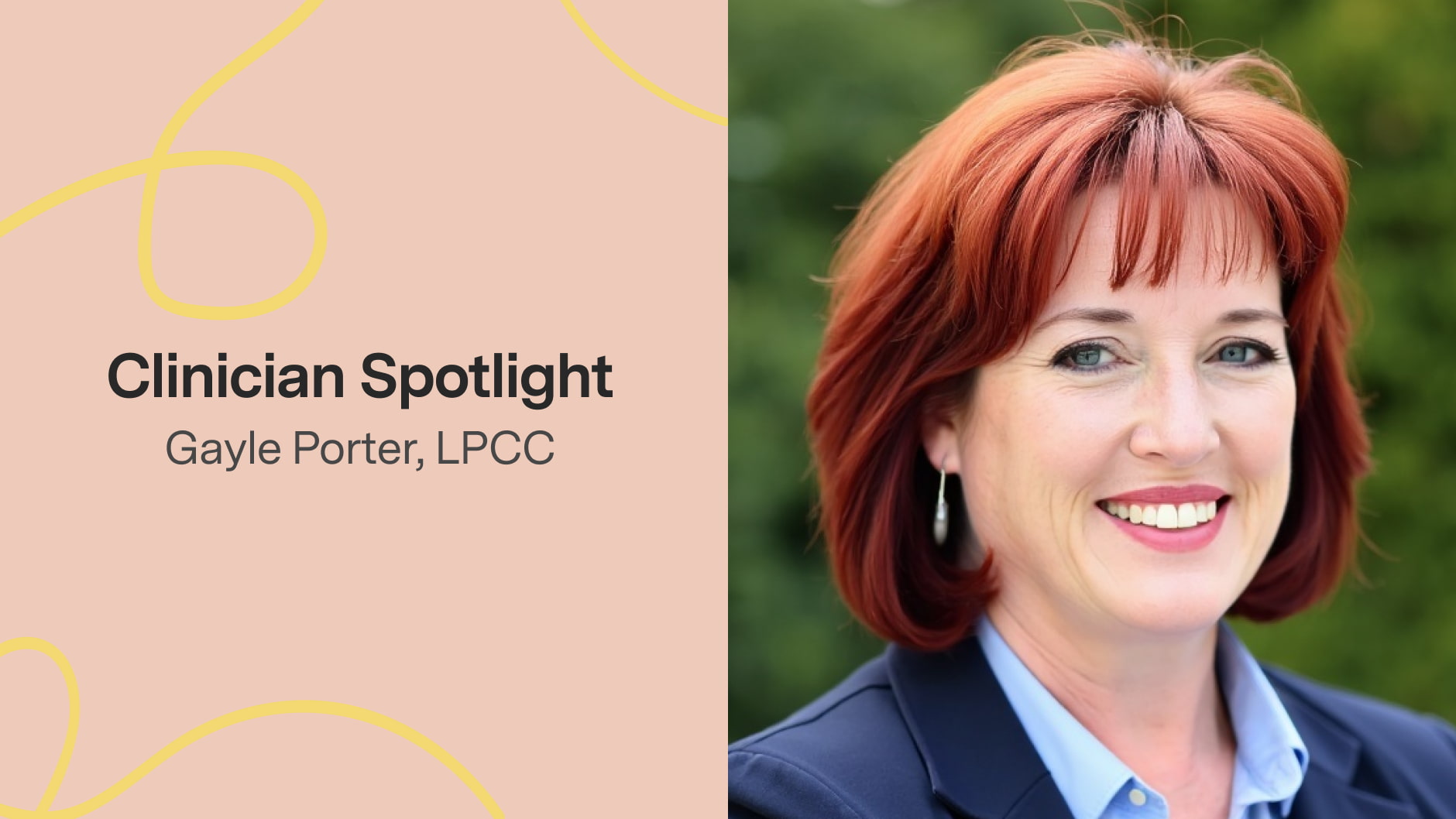In Brief
A large part of what makes the Golden Thread community so special is the diversity of voices and perspectives from our readers. This month, we’re featuring Gayle Porter, LPCC: a Clinical Supervisor and owner of New Mexico Crisis Counseling (nmcrisis.org). Her counseling agency specializes in providing evidence-based suicide focused care. Gayle is also a consultant and trains clinicians in overcoming apprehension when working with suicidal clients (and other topics related to suicide assessment, intervention, and documentation). Take a look at our full interview below.
What’s something that people might be surprised to learn about you?
People are often surprised to learn that I spent 12 years as a police officer. Therapy wasn’t my initial calling—in fact, I didn’t even consider it until I became a Crisis Intervention Team officer and saw firsthand how psychological insight could change the outcome of high-stakes situations. That experience changed everything for me.
Can you share your journey to becoming a therapist? What drew you to the profession?
Becoming a therapist was never part of my original plan. But after working in law enforcement and receiving crisis intervention training, I found myself increasingly drawn to understanding human behavior through a psychological lens. I saw how trauma, mental illness, and unspoken emotional pain were at the root of many crises. Eventually, I realized I wanted to be part of the healing side of that equation. I went back to school, earned my degree, and committed to doing the kind of work that helps people move from surviving to actually living.
Watching new clinicians grow into confident, competent professionals reminds me why I started this work in the first place. It’s one of the most hopeful parts of what I do.
If you could offer one piece of wisdom to newer therapists, what would it be?
Trust—but verify. Even when we build strong rapport, clients may not always be forthcoming. Sometimes they withhold information or test whether we’ll ask the hard questions. Don’t assume they'll tell you everything. Be brave enough to ask directly and compassionately. Your curiosity is not intrusive—it’s part of how you show care.

Do you have a daily ritual or habit that grounds you before seeing clients or between sessions?
Absolutely. Every morning, I spend a couple of hours walking in the wilderness with my dogs. That time outdoors is non-negotiable—it reconnects me to myself and helps me set the tone for the day. Between sessions, I go into my yard and literally put my hands on the ground. I also let clients know when I need to step away to get a drink or take a break. It’s a way of modeling self-care and staying human in the room.
What’s one underrated or overlooked therapeutic skill you think more clinicians should focus on?
I think we underestimate the power of asking direct, even uncomfortable, questions. Being a therapist isn’t just about being safe and warm—it’s also about being willing to name what’s not being said. That takes courage, especially when we’re afraid it might upset the client. But more often than not, they’re relieved someone finally asked.
What do you do to take care of your own mental and emotional well-being?
I protect my time fiercely. I don’t let work interfere with the people and animals I love. I’ve learned the hard way that if I answer texts or calls outside of business hours, I teach clients to expect that access. For example, I once responded to a message on a Saturday—and soon that same client began calling at 6 a.m. I had shown her what was okay by not holding my boundary. Now, I’m much more intentional. As a supervisor and business owner, I know I can’t tell my team to prioritize work-life balance if I’m emailing them at midnight.
Being a therapist isn’t just about being safe and warm—it’s also about being willing to name what’s not being said. That takes courage, especially when we’re afraid it might upset the client. But more often than not, they’re relieved someone finally asked.
How do you set boundaries around your time, especially with client communication or documentation?
I provide a clear written guide that outlines which forms of communication are appropriate for different needs—like when to email, when to use the portal, and what to do in a crisis. I walk clients through what will happen if they don’t reach me and give them concrete instructions for contacting 988. Because I was a clinical supervisor on the crisis line for several years, I’ll even role-play that call with them so they feel more confident using it. I make it clear from the start that I’m not available 24/7—I’m often with other clients or offline entirely—and that setting those boundaries is one of the ways I ensure I can show up fully when I am with them.

How do you maintain a sense of meaning and motivation in your work over time?
I find a lot of meaning in supervising and training the next generation of therapists. I think about all the mistakes I’ve made, and I try to help them learn from those. Watching new clinicians grow into confident, competent professionals reminds me why I started this work in the first place. It’s one of the most hopeful parts of what I do.










